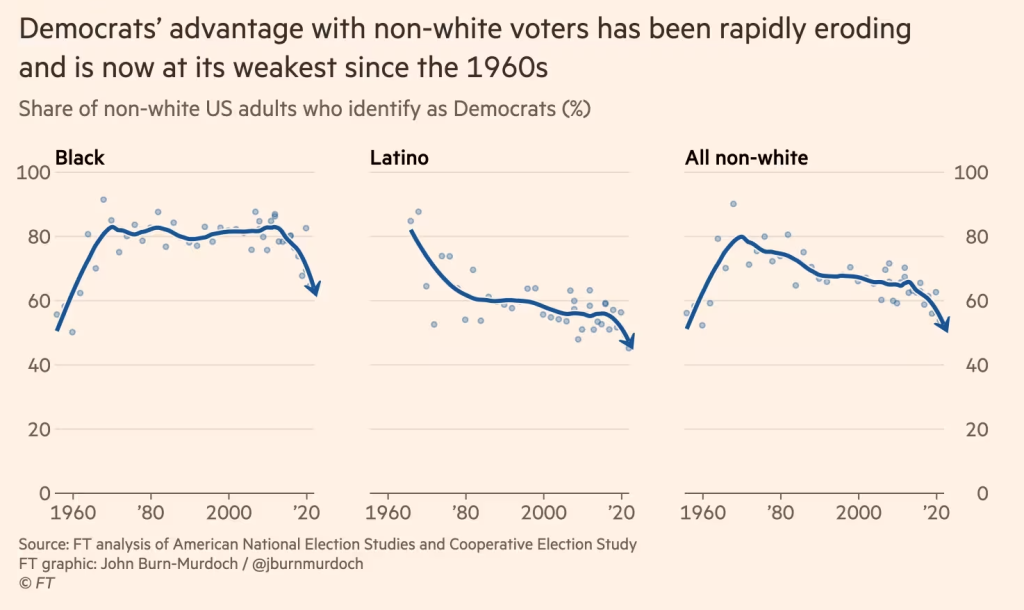
After the passage of the Civil Rights Act in 1964, Democrat Lyndon Baines Johnson is purported to have said, "I'll have those n*****s voting Democratic for 200 years!"
The line lives on infamy. If it was spoken aloud or not, Johnson's racism was an open secret. Even MSNBC can admit as much. To him, the raft of legislation passed on the tide of good will toward progressive policies following the Kennedy assassination was a vote-getter, not an achievement for mankind. He even called it "the n***** bill".
The reliability of the black voting bloc is the stuff of political lore, a foundational stone in the Democratic Party's base. But there has been some erosion in the past decade, enough to raise a red flag. Blacks voted Dem 93% in 2012, 89% in 2016, and 87% in 2020.
Six points lost in eight years? That's a problem.
And it looks to be a growing trend based on polling leading up to November. According to the Financial Times, nonwhite support for the Democrats is at its lowest point since the '60s.

In a new version of Biden's "you ain't black" taunts, Barack Obama recently shared his thoughts about voting for Kamala Harris, shaming the "brothers" who are reluctant to vote for her. This approach fell flat with many voters.
For her part, Kamala has turned shamelessly to reparations promises as a lure for black votes. In a town hall with Charlamagne Tha God, Harris hinted at plans for a reparations bill, stating that "nobody got 40 acres and a mule".
We seem to have arrived at the intersection of race and likability. Skin color is one thing, but a variety of factors decide who voters support. Kamala Harris was unpopular four years ago in the Democratic primary, and she is unpopular now after a low-energy stint as vice president, and that's before one takes her record on the border into account.
The open border policy for the past four years has become, in hindsight, a naked attempt at voter base replenishment. And that's a future course that doesn't benefit anyone who is already a legal citizen, regardless of skin color.